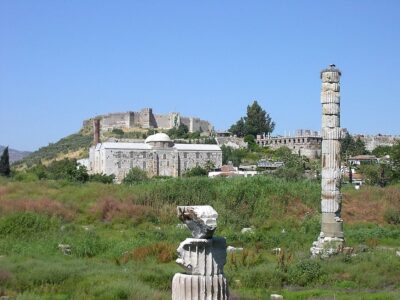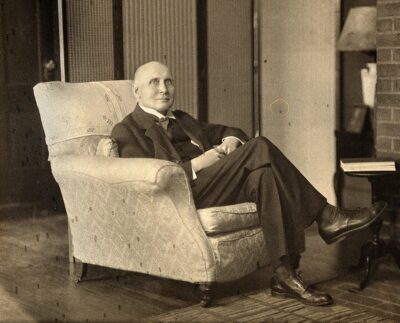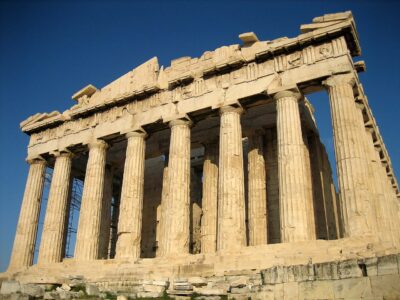ヘラクレイトス「万物は流転する」「対立の原理」世界秩序と変動の哲学

Heraclitus: Philosophy of World Order and Flux
Heraclitus, known for his aphorisms “Everything flows” and “The unity of opposites,” delved into a philosophy of world order and change.

Ἡράκλειτος
Heraclitus
イントロダクション
古代ギリシャの哲学者ヘラクレイトスは、「万物は流転する」という考えを持ち、対立の原理が世界秩序と変動に関与していると主張しました。
彼の哲学は、日本国内でも注目を集めており、その思想は現代にも影響を与えています。
ヘラクレイトスの哲学には、固定されたものではなく、常に変化する世界の理解が求められます。
この記事では、彼の思想の根本的な要素やその影響について探求していきます。
Introduction
The ancient Greek philosopher Heraclitus espoused the idea that “everything flows” and asserted that the principle of opposition is involved in the order and flux of the world.
His philosophy has garnered attention even within Japan, and his ideas continue to influence the modern world.
Understanding Heraclitus’s philosophy requires grasping the notion of a world in constant flux rather than fixed entities.
In this article, we will explore the fundamental elements of his philosophy and its impact.
ヘラクレイトスの略歴
ヘラクレイトスは紀元前6世紀にエフェソスで生まれた古代ギリシャの哲学者です。
彼は「万物は流転する」という有名な言葉を残し、自然哲学の先駆者として知られています。
彼の略歴については、史料が少なく、確かなことはわかりませんが、一般的には次のようなことが言われています。
彼はエフェソスの名門貴族の家系に生まれました。彼の父親はブロソスという名前で、エフェソスの王であったヘラクレイダイの末裔だとされています。
彼は王位を継ぐ権利を持っていましたが、それを放棄して哲学に専念しました。
幼少期から独学で哲学を学び、当時の有名な哲学者と交流することはなく、自分の考えを独自に展開しました。
彼は生涯にわたってエフェソスに住みましたが、市民との関係は良くありませんでした。彼は市民の習慣や信仰や政治に批判的で、自分の考えを押し付けることもありました。
そのため「暗い哲学者」や「泣く哲学者」と呼ばれ、市民から孤立していました。
彼は60歳ぐらいで死去しました。
死因については諸説ありますが、一説によると、病気にかかってアルテミス神殿に行きましたが、神官たちに拒否されて、牛小屋で死んだと言われています。
彼の遺体は犬に食べられたとも言われています。

Temple of Achaea (near Ephesus)
Heraclitus’s Biography
Heraclitus was an ancient Greek philosopher born in Ephesus in the 6th century BC.
He left behind the famous words “everything flows” and is known as a pioneer of natural philosophy.
Although there are few records about his life, it is generally said that the following:
He was born into a noble family in Ephesus. His father, named Blyson, was said to be a descendant of the Heraclidae, the ruling family of Ephesus.
He had the right to inherit the throne but chose to abandon it to pursue philosophy.
From a young age, he studied philosophy independently and did not interact with other famous philosophers of the time, developing his own ideas.
He lived in Ephesus throughout his life but had a poor relationship with the citizens. He was critical of their customs, beliefs, and politics, often imposing his own ideas.
Because of this, he was called the “dark philosopher” or the “weeping philosopher” and was isolated from the citizens.
He died around the age of 60.
There are various theories about the cause of his death, but according to one account, he fell ill and went to the Temple of Artemis, where he was denied entry by the priests and died in a cowshed.
It is also said that his body was eaten by dogs.
ヘラクレイトスの哲学
ヘラクレイトスの哲学には、様々な主張があります。
まず、宇宙の根本原理として「ロゴス」を提唱しました。
ロゴスは、理性や秩序、世界の統一的な原理を指し、宇宙の中での変化と秩序を結びつけるものと定義しました。
また、対立の原理を重視しました。
彼は対立するものがバランスを保ちながら相互作用することによって世界が発展し、変化すると考えました。
例えば、熱と冷たさ、光と暗闇、善と悪などの対立が存在し、バランスが保たれることで世界が維持されると述べました。
また、ヘラクレイトスは、「万物は流転する」という有名な言葉で知られています。
彼は世界の根本的な性質が変化であり、恒久的なものは存在しないと考えました。
彼は万物の流転と変化を強調し、個々の存在が相互に作用し合いながら永遠の変化を続けると主張しました。
その他にも、人間の知覚や理解の限界を強調しました。
彼は、人々は感覚を通じて世界を知覚し、それによって一時的な真実を把握することができると考えましたが、絶対的な真理に到達することはできないと主張しました。
Heraclitus’s Philosophy
Heraclitus’s philosophy encompasses various assertions.
Firstly, he advocated “Logos” as the fundamental principle of the cosmos.
Logos refers to reason, order, and the unified principle of the world, defining it as the connection between change and order within the universe.
Additionally, he emphasized the principle of opposites.
He believed that the world develops and changes through the interaction of opposing forces, maintaining balance. For instance, he stated that the existence of opposites like heat and cold, light and darkness, good and evil, maintains the world’s equilibrium.
Moreover, Heraclitus is famous for the saying “everything flows.”
He believed that the fundamental nature of the world is change, and that nothing permanent exists. He emphasized the flux and change of all things, asserting that individual entities continue to undergo eternal change while interacting with each other.
Furthermore, he underscored the limits of human perception and understanding.
He believed that people perceive the world through their senses and can grasp temporary truths through them, but cannot attain absolute truth.
「万物は流転する」とは
ヘラクレイトスの「万物は流転する」という考え方は、彼の哲学の中で中心的な概念です。
ギリシャ語の「パンタ・レイ」というフレーズを用いて、すべてのものが流転していることを表現しました。
彼は世界の根本的な性質が変化であり、恒久的なものは存在しないと主張しました。
自然界には常に動きと対立があり、それらが調和して秩序を形成していると考えました。
彼は、火が自然界の根源であり、火が変化することで万物が生まれ変わると主張しました。
「相反するものが結びついている」とは
ヘラクレイトスの哲学において、相反するものが結びついているという考え方は、彼の「対立の原理」という概念に関連しています。
ヘラクレイトスは世界の発展や変化を対立する要素の相互作用によって説明しました。
彼によれば、対立するものがバランスを保ちながら相互に作用し合うことで、世界が発展し変化するのです。
例えば、熱と冷たさ、光と暗闇、善と悪などの対立する要素が存在し、それらがバランスを保つことで世界が維持されると考えました。
ヘラクレイトスによれば、相反するものが結びついていることで、世界は統一された存在となります。
彼は対立する要素が互いに依存し、相互作用することでバランスを保ちながら存在していると考えました。
対立するものが結びついていることによって、世界は一体となり、総体的な秩序が成り立っているとされます。
ヘラクレイトスの自然哲学
ヘラクレイトスは、絶えず変化し続ける物事の中心として、「ロゴス」が宇宙に存在するすべてのものを司り、調和や秩序をもたらすと主張しました。
「ロゴス」は文脈によっては、神や理性、言葉などと訳されることもあり、万物流転の思想を補完する概念として、ヘラクレイトスが最初に提唱しました 。
ヘラクレイトスは、わたしたちもこの世界の一部であるため、ロゴスを認識し調和して生きるべきだと考え、「自然に従って生きよ」と説きました。
ヘラクレイトスの宇宙論
ヘラクレイトスの宇宙論は、変化と対立の概念に基づいています。
「万物は流転する」の考えのもと、宇宙も絶えず変化し、成長し、進化していると主張しました。
彼にとって、世界は動的であり、静止するものは何もないと考えられました。
さらに、全ての物事が対立する力によって引き裂かれ、それでもまた一つに統合されるという「対立の概念」から、宇宙もまた、「ロゴス」によって調和され、統制されていると考えました。
人間存在の考察
ヘラクレイトスは、人間の存在もまた絶えず変化していると考えました。
彼にとって、人間の認識、思考、感情はすべて動的であり、一定のものは何もないと考えられました。
これは先ほどの宇宙論と一致しており、すべての存在が変化と対立の中にあるという彼の視点を強調しています。
また、ヘラクレイトスは人間の知識と理解について特殊な見解を持っていました。
彼は、真実は常に我々の理解を超えていると考え、個々の人間の視点は必ずしも真実を捉えていないと主張しました。
これは彼の「ロゴス」の概念に関連しており、ロゴスは普遍的な理性または理解を指し、個々の人間の視点を超えています。
ヘラクレイトスの人間存在の考察は、宇宙と人間の関係、人間の知識と理解、そして人間の変化と発展の問題を扱っています。
“What ‘Everything Flows’ Means”
The idea of “everything flows” by Heraclitus is a central concept in his philosophy.
Using the Greek phrase “panta rhei,” he expressed the notion that everything is in a state of flux.
He argued that the fundamental nature of the world is change, and that nothing permanent exists.
In the natural world, there is always movement and opposition, and he believed that they harmonize to form order.
He asserted that fire is the source of the natural world, and that all things are born anew through the change of fire.
“What Opposites Are Unified Means”
In Heraclitus’s philosophy, the idea that opposites are unified is related to his concept of the “unity of opposites.”
Heraclitus explained the development and change of the world through the interaction of opposing elements.
According to him, the world develops and changes through the interaction of opposing forces that maintain balance.
For example, he believed that the existence of opposing elements like heat and cold, light and darkness, good and evil, maintains the world’s balance.
According to Heraclitus, the unity of opposites makes the world a unified existence.
He believed that opposing elements depend on each other and exist in balance through interaction.
By being unified, the world becomes a whole, and a comprehensive order is established.
“Heraclitus’s Philosophy of Nature”
Heraclitus asserted that “Logos” governs everything in the universe as the central element of constantly changing things, bringing harmony and order.
“Logos” is sometimes translated as God, reason, or word depending on the context, and Heraclitus first proposed it as a concept complementing the philosophy of everything in flux.
Heraclitus believed that since we are also part of this world, we should recognize and live in harmony with the Logos, and he preached, “live in accordance with nature.”
“Heraclitus’s Cosmology”
Heraclitus’s cosmology is based on the concepts of change and opposition.
Under the idea of “everything flows,” he argued that the universe is constantly changing, growing, and evolving.
For him, the world is dynamic, and there is nothing that remains still.
Furthermore, he believed that everything is torn apart by opposing forces, yet the universe is harmonized and controlled by “Logos.”
Reflection on Human Existence
Heraclitus believed that human existence is also constantly changing.
For him, human perception, thought, and emotions are all dynamic, and there is nothing constant.
This is consistent with his cosmology, emphasizing his view that all existence is in a state of change and opposition.
Additionally, Heraclitus had a unique perspective on human knowledge and understanding.
He believed that truth always surpasses our understanding, and individual human perspectives do not necessarily grasp the truth.
This relates to his concept of “Logos,” which refers to universal reason or understanding beyond individual human perspectives.
Heraclitus’s reflection on human existence addresses the relationship between the universe and humans, human knowledge and understanding, and the issue of human change and development.
ヘラクレイトスの名言集
ヘラクレイトスは古代ギリシャの哲学者であり、彼の名言は多くの人々に影響を与えてきました。
彼は「万物は流転する」という有名な言葉で知られています。
この言葉は、世界が絶えず変化していることを表しています。
ヘラクレイトスはまた、「対立の原理」という考えも持っており、対立する要素が世界の秩序を保つと主張しています。
ヘラクレイトスの名言集には、さまざまな洞察が含まれています。
彼は人間の存在についても考えました。
彼は「人間は自然の一部であり、自然の摂理に従うべきだ」と述べています。
彼はまた、「知恵は経験から生まれる」とも言っており、知識を得るためには経験が必要であることを強調しています。
ヘラクレイトスはまた、人間の思考や感情についても深く考えました。
彼は「思考は言葉によって形作られる」と言い、言葉が私たちの思考を形作る重要な要素であることを指摘しています。
また、彼は感情についても言及し、「怒りは愚かさの始まりである」と述べています。
彼は感情が私たちの判断力を鈍らせる可能性があることを示唆しています。
ヘラクレイトスの名言集は、彼の哲学的な考えを理解するための貴重な資料です。
彼の言葉は今もなお私たちに深い洞察を与えてくれます。
彼の思想は、世界の変動と秩序についての考えを追求する人々にとって、価値あるものとなるでしょう。
Heraclitus’s Collection of Quotes
Heraclitus, an ancient Greek philosopher, has had a significant influence on many people with his memorable quotes.
He is renowned for his saying, “Everything flows,” which signifies the constant change in the world.
Additionally, Heraclitus espoused the concept of the “unity of opposites,” suggesting that opposing elements maintain the order of the world.
Heraclitus’s collection of quotes encompasses various insights.
He contemplated human existence, stating that humans are part of nature and should adhere to its laws.
Furthermore, he remarked, “Wisdom comes from experience,” emphasizing the necessity of experience to acquire knowledge.
Delving into human thought and emotion, Heraclitus noted that “thought is shaped by words,” underscoring the role of language in shaping our thoughts. He also mentioned emotions, stating, “Anger is the beginning of folly,” implying that emotions can dull our judgment.
Heraclitus’s collection of quotes serves as a valuable resource for understanding his philosophical ideas.
His words continue to provide profound insights, making his philosophy valuable to those exploring the dynamics and order of the world.
ヘラクレイトスの哲学の影響
ヘラクレイトスの哲学の影響は多方面に及びます。
彼の思想は、後の哲学者、特にプロセス哲学、存在論、および後の自然哲学に大きな影響を与えました。

Alfred North Whitehead
プロセス哲学:ヘラクレイトスの「万物は流転する」という考え方は、プロセス哲学(す べては絶えず変化し、進化するという視点)の基礎を築きました。
この視点は、アルフレ ッド・ノース・ホワイトヘッドやチャールズ・ハートショーンなどのプロセス哲学者によ って後に発展しました。
存在論:ヘラクレイトスの思想はまた、存在論にも影響を与えました。
彼の変化と対立の 概念は、存在の本質が一定ではなく、絶えず変化しているという見方を強調しています。
自然哲学と科学:ヘラクレイトスの火をアルケーとする考え方は、自然哲学に影響を与え、 自然現象の解釈に対する新たな視点を提供しました。
また、彼の変化と流動性の概念は、 物理学と化学の分野でも受け入れられ、物質の変化とエネルギーの概念に影響を与えま した。
心理学:また、ヘラクレイトスの思想は心理学にも影響を与えました。
「万物は流転する」 という視点は、人間の心理状態もまた一定ではなく、絶えず変化しているという心理学の 基本的な前提につながります。
The Influence of Heraclitus’s Philosophy
Heraclitus’s philosophy has had a wide-ranging impact across various fields.
His ideas significantly influenced later philosophers, particularly in process philosophy, ontology, and later natural philosophy.
Process Philosophy: Heraclitus’s concept of “everything flows” laid the foundation for process philosophy, which views everything as constantly changing and evolving. This perspective was further developed by process philosophers like Alfred North Whitehead and Charles Hartshorne.
Ontology: Heraclitus’s thought also left its mark on ontology. His notion of change and opposition emphasizes the view that the essence of existence is not fixed but constantly changing.
Natural Philosophy and Science: Heraclitus’s notion of fire as the fundamental principle (arche) influenced natural philosophy, providing a new perspective on interpreting natural phenomena. Moreover, his concept of change and flux found acceptance in the fields of physics and chemistry, influencing ideas about the transformation of matter and energy.
Psychology: Additionally, Heraclitus’s ideas impacted psychology. The perspective of “everything flows” aligns with the fundamental premise in psychology that states human psychological states are not constant but constantly changing.


Warning: Undefined variable $comment_form_sns_tags in /home/ktsky/philosophy-kayak.com/public_html/wp-content/themes/shaper/comments.php on line 27
1件のコメントがあります